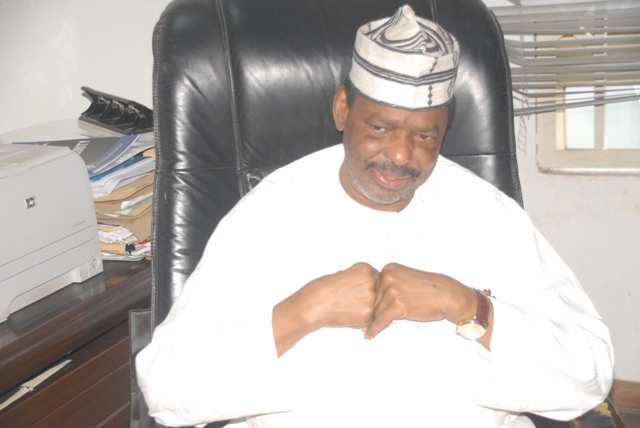The acting director general of the Nigerian Civil Aviation Authority (NCAA), Capt. Abdullahi Sidi, has said that the new Bayelsa Airport would be issued a certificate to start commercial operation when a perimeter fence is provided.
Sidi who disclosed this in an interview with journalists in his office in Lagos on Monday said the absence of adequate perimeter fence was the reason NCAA had not certified the airport.
“Every airport must have what is called perimeter fencing, which could be solid wall with a buffer and sharp fence to stop infiltration into the airport environment. Also, we have what we called the airside and the passenger side of an airport. The airside is supposed to be much more secured than the passenger side.
“Somebody called me on the issue of Bayelsa Airport, then, after I did my own investigation. Perimeter fencing is number one requirement for any airport, which is safety. Someone said the government has done about 60 per cent of the perimeter fencing and said the other side of the airport is creek, but I said that is not acceptable to aviation industry.
“That perimeter fencing is the only thing remaining for Bayelsa Airport. There is no politics about it. That is the requirement. And anything security is taken seriously. It is a security issue. If we need to close an airport because of security issue, we will until they comply,” he said.
Thereafter, he praised the Federal Airports Authority of Nigeria (FAAN) for providing quality security systems at the nation’s airports, particularly at the international aerodromes.
Despite some of the teething challenges at the airports, he said the major aerodromes in Lagos and Abuja continued to receive high ratings in terms of security in international community.
He said the Lagos and Abuja airports consistently score over 90 per cent in international security audits, stressing that the government was focusing on security and safety at the nation’s airports.
Sidi said the air and the passenger sides of the airports are equipped with closed circuit television cameras thereby making it difficult for intruders to penetrate restricted areas of the airports without detection.
He recalled how security gadgets at the Lagos Airport tracked down the underwear bomber, Umar Farouk Abdulmutallab in 2009.
“So, it is difficult for any unlawful person to penetrate the airport without tracking the person. I hope you can remember the Abdulmutallab era in 2009, he was tracked and even between then and now, a lot has improved in the system,” he added.
He pointed out that without the high security networks in Nigerian airports, the sole American airline, Delta, operating into Nigeria would have ceased operations.
He said the US Department of Transport (DoT) personnel audit the Lagos Airport almost every three months because of its interest.
“Inasmuch as we have some minor security issues, Nigerian airports especially, Lagos and Abuja, security-wise, we have achieved 96 per cent of the international security audit of our airports and if you remember, not long ago, Hadi Sirika, the minister of aviation, collected certificate from the International Civil Aviation Organisation (ICAO) in Canada for achieving very high security standards at our airports.
Sidi, however, noted that some of the security challenges in the country’s aviation industry are not peculiar to Nigeria alone, stressing that each country had its own security challenges that it battles.


























































